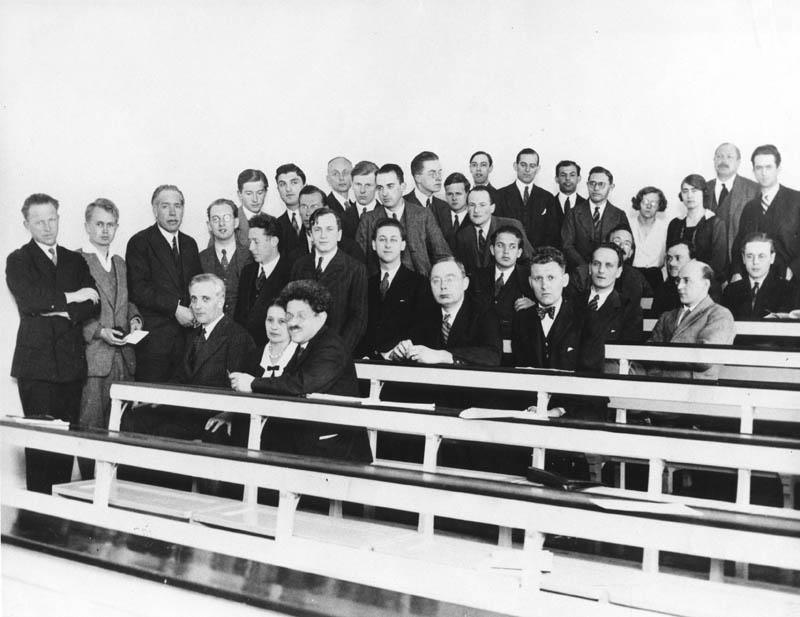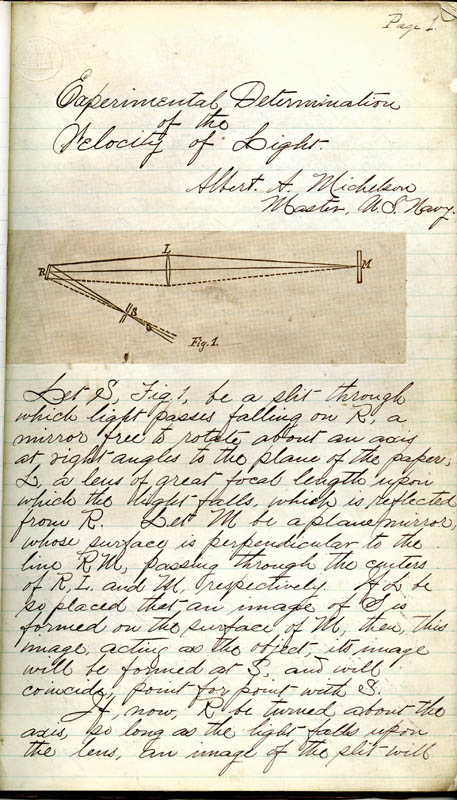6 Reasons Why the History of Physics Matters
Fall
2017
Special Feature
6 Reasons Why the History of Physics Matters
Lexxi Reddington, SPS 2017 Intern, University of Denver
 History is often disregarded in the study of physics, yet it is inherently connected to scientific inquiry through documentation of theory and subject matter through time. Scientific figures throughout history often serve as role models and examples for future physicists as well. Dredging up the history textbooks may seem like an absurd way to advance science, but consider: History involves ideas, theories, and equations that become the foundation for future improvements. Here are six reasons why understanding the history of physics could be useful to physicists and future physicists alike:
History is often disregarded in the study of physics, yet it is inherently connected to scientific inquiry through documentation of theory and subject matter through time. Scientific figures throughout history often serve as role models and examples for future physicists as well. Dredging up the history textbooks may seem like an absurd way to advance science, but consider: History involves ideas, theories, and equations that become the foundation for future improvements. Here are six reasons why understanding the history of physics could be useful to physicists and future physicists alike:

1. History documents how ideas develop and change over time.
Aristotle profoundly shaped scholarship with his use of empirical evidence and reliance on logic. Yet, several of his theories were also wrong: he believed the heavenly bodies were made from “aether,” women had fewer teeth than men, and eels reproduced by spontaneous generation. These ideas were later disproved, using Aristotle’s same methods of empirical evidence and logic.
2. History illuminates the scientific method.
Galileo Galilei was one of the first to quantify science by insisting that phenomena be explained mathematically and proved experimentally. He even developed several instruments to further advance his observations. Galileo encouraged scientific work to be measurable, and therefore repeatable, which later became a hallmark of the scientific method. Over time, scientists further developed the scientific method to augment the legitimacy of scientific conclusions. History therefore offers insight into how today’s accepted scientific practices and processes evolved.
3. History shows the humanistic side of physics in a historical and cultural context.
Niels Bohr founded the Niels Bohr Institute in Copenhagen in 1921, which later became a refuge for scientists fleeing German-occupied territories during World War II. He contributed greatly to the physics community, not only in his discoveries, but also in helping save the lives of numerous scientists. Bohr showed that science is about much more than just lab work and equations—it’s about making life better for all of humanity. In using his physics career and notoriety, Bohr was able to do just that and literally save lives.
4. History chronicles the significant collaborations amongst physicists.
The European Organization for Nuclear Research (CERN) is one of the largest and most advanced centers for scientific research in the world. CERN is possible only through significant collaborations between multiple countries. To this day, CERN continues to contribute scientific knowledge and new discoveries, such as with the Compact Muon Solenoid (CMS) project, through the combined efforts of scientists across the globe. This collaboration is critical to the progression of science because it combines the talents, ideas, and perspectives of different people toward accomplishing a shared goal. Examples of collaborations throughout history demonstrate how more can be achieved when people work together.
5. History details how physicists think.
Albert Michelson was a physicist and the first American to receive the Nobel Prize in Science. He is best known for his work in measuring the speed of light and in the Michelson-Morley experiment. The notebook he used to document his ideas, calculations, and conclusions on the speed of light offers insight into his thought processes and methods. His notes are thorough and detailed, which shows how methodical he was in the documentation of his experiments.
6. History inspires people to pursue physics and make new scientific discoveries.
J. Robert Oppenheimer is often referred to as the “father of the atomic bomb,” due to his work on the Manhattan Project. Oppenheimer lobbied for international control and limitation of nuclear power. Opposing politicians retaliated by revoking his security clearance, which effectively severed his political influence. Despite this, Oppenheimer continued to teach, work, and promote the positions he believed in. Oppenheimer is just one example of a historical figure who advocated for people to pursue physics and who proves that adversity should not impede scientific work.
Still not convinced that the history of physics matters? At the very least, historical precedent motivates physicists to challenge common perceptions and popular opinions in search of the truth. Nicolaus Copernicus was one such scientist who denounced the widespread belief that the Sun revolved around the Earth and instead used scientific evidence to lobby for a heliocentric model. Copernicus faced significant opposition for this model, but that did not stop him from promoting the truth about the solar system. In that sense, the history of physics is a record of civilization’s past achievements, new knowledge, and still unanswered questions. Such a record is worth knowing.

